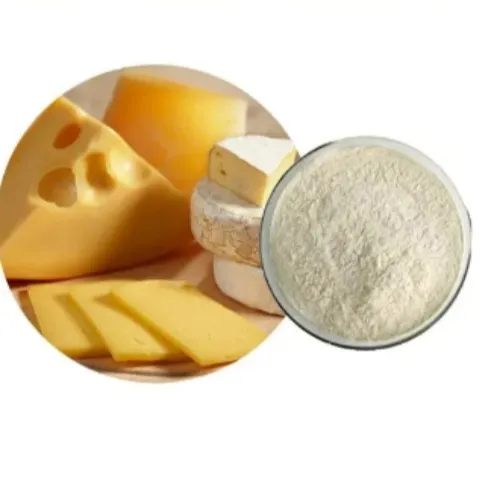 Email: sale@hebeidisha.com
Email: sale@hebeidisha.com
 Tel: +86 13315186550
Tel: +86 13315186550
- Afrikaans
- Albanian
- Amharic
- Arabic
- Armenian
- Azerbaijani
- Basque
- Belarusian
- Bengali
- Bosnian
- Bulgarian
- Catalan
- Cebuano
- China
- China (Taiwan)
- Corsican
- Croatian
- Czech
- Danish
- Dutch
- English
- Esperanto
- Estonian
- Finnish
- French
- Frisian
- Galician
- Georgian
- German
- Greek
- Gujarati
- Haitian Creole
- hausa
- hawaiian
- Hebrew
- Hindi
- Miao
- Hungarian
- Icelandic
- igbo
- Indonesian
- irish
- Italian
- Japanese
- Javanese
- Kannada
- kazakh
- Khmer
- Rwandese
- Korean
- Kurdish
- Kyrgyz
- Lao
- Latin
- Latvian
- Lithuanian
- Luxembourgish
- Macedonian
- Malgashi
- Malay
- Malayalam
- Maltese
- Maori
- Marathi
- Mongolian
- Myanmar
- Nepali
- Norwegian
- Norwegian
- Occitan
- Pashto
- Persian
- Polish
- Portuguese
- Punjabi
- Romanian
- Russian
- Samoan
- Scottish Gaelic
- Serbian
- Sesotho
- Shona
- Sindhi
- Sinhala
- Slovak
- Slovenian
- Somali
- Spanish
- Sundanese
- Swahili
- Swedish
- Tagalog
- Tajik
- Tamil
- Tatar
- Telugu
- Thai
- Turkish
- Turkmen
- Ukrainian
- Urdu
- Uighur
- Uzbek
- Vietnamese
- Welsh
- Bantu
- Yiddish
- Yoruba
- Zulu
Aug . 09, 2024 04:15 Back to list
Is Xanthan Gum a Vegan Ingredient Suitable for Plant-Based Diets and Lifestyles?
Is Xanthan Gum Vegan? Understanding Its Origins and Uses
In recent years, the trend towards plant-based diets has intensified as more individuals become aware of the ethical and environmental impacts of their food choices. As a result, many people now scrutinize food ingredients to determine whether they align with vegan principles. One common ingredient that often comes up in this discussion is xanthan gum. This thickening agent is popular in many processed foods, but what exactly is xanthan gum, and is it vegan?
What is Xanthan Gum?
Xanthan gum is a polysaccharide that is produced through the fermentation of sugars by the bacterium *Xanthomonas campestris*. This process involves the bacterium feeding on a carbohydrate source, such as cornstarch, which it breaks down and then excretes xanthan gum as a byproduct. The xanthan gum is subsequently harvested, purified, and dried into a powder before being added to various food products.
Because the primary source for xanthan gum production can be derived from plant-based materials (like corn, wheat, or soy), the ingredient itself is generally considered vegan. Unlike other thickening agents that might use gelatin (derived from animal collagen) or other animal products, xanthan gum's origin is purely plant-based. Therefore, for individuals following a vegan diet, xanthan gum is a safe and acceptable ingredient.
Common Uses of Xanthan Gum
Xanthan gum is widely used in the food industry for its thickening and stabilizing properties. It is commonly found in salad dressings, sauces, gluten-free baked goods, dairy substitutes, and even ice creams. In gluten-free formulations, it plays an essential role by mimicking the elasticity and texture that gluten provides in traditional bread and pastries.
xanthan gum is vegan

Beyond its culinary applications, xanthan gum is also employed in cosmetic products, pharmaceuticals, and even oil drilling, where it helps to stabilize mixtures. Its versatility makes it a valuable ingredient across a variety of industries.
Health Implications
From a health perspective, xanthan gum is recognized as safe for consumption by most health authorities, including the FDA, which classifies it as a Generally Recognized As Safe (GRAS) substance. However, like any food additive, it may cause digestive issues for some individuals, particularly in excessive amounts. People with specific sensitivities or allergies to corn or soy may want to be cautious and consult with a healthcare provider if they experience discomfort after consuming products containing xanthan gum.
Conclusion
In conclusion, xanthan gum is a vegan-friendly ingredient that comes from a fermentation process involving a plant-based source. Its widespread use in various food products, especially gluten-free options, highlights its importance in modern dietary practices. As consumers continue to seek out vegan and plant-based foods, xanthan gum stands out as a versatile and safe thickening agent that aligns with a vegan lifestyle. When shopping for products, it’s always prudent to check labels, but rest assured that xanthan gum is generally a viable choice for those adhering to a vegan diet.
As we continue to navigate our food choices in an increasingly health-conscious and ethically-minded society, understanding ingredients like xanthan gum is crucial. Not only does it enhance our favorite foods, but it also exemplifies how innovation can bridge traditional culinary practices with modern dietary needs.
Latest news
-
Certifications for Vegetarian and Xanthan Gum Vegetarian
NewsJun.17,2025
-
Sustainability Trends Reshaping the SLES N70 Market
NewsJun.17,2025
-
Propylene Glycol Use in Vaccines: Balancing Function and Perception
NewsJun.17,2025
-
Petroleum Jelly in Skincare: Balancing Benefits and Backlash
NewsJun.17,2025
-
Energy Price Volatility and Ripple Effect on Caprolactam Markets
NewsJun.17,2025
-
Spectroscopic Techniques for Adipic Acid Molecular Weight
NewsJun.17,2025